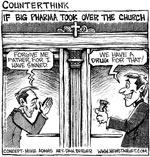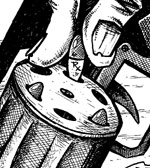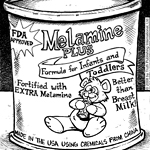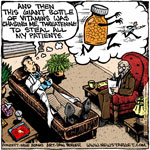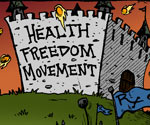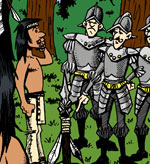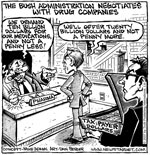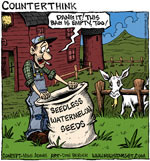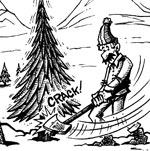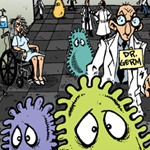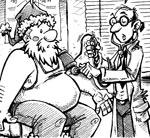Using Zinc Lozenges as Quickly as Possible Is Key to Getting Good Results
| Share on Facebook | Share on Twitter | Share on Google+ |
The Cochrane Database of Medical Reviews specializes in finding the consistencies and inconsistencies of the medical research literature across studies. Eighteen different studies have looked at the effects of zinc on colds, and eleven found various statistically significant levels of measurable relief.
When the researchers at Cochrane took a close look at the effects of zinc on colds, they found that taking zinc lozenges, tablets, or syrup at the very first sign of a sore throat or sniffle accelerated healing by a day, and made symptoms less severe.
The study found that children who are given zinc are less likely to need to be given antibiotics, and that they missed fewer days of colds. Adults who take zinc on a regular basis during flu and colds season are less likely to catch a cold.
Cochrane did not find that zinc cures a cold, but that it is more helpful than orange juice, vaporizers, the over the counter remedy Nyquil, and even chicken soup.
The Cochrane Database focuses on results rather than causes. This study did not explain why zinc cures a cold, but researchers believe this is due to some kind of interference with the way the cold virus attaches itself to cells in the nose and throat, and with the way it reproduces itself.
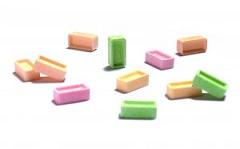 Cochrane tends to be conservative, that is, they play down the best results of individual studies. A study published in March 2008 in the the Journal of Infectious Diseases, for instance, found that the results were considerably better than the average of all studies. This clinical trial found that taking zinc at the first sign of symptoms reduced the duration of a cold from seven days to four days, and reduced days with coughing from five to two.
Cochrane tends to be conservative, that is, they play down the best results of individual studies. A study published in March 2008 in the the Journal of Infectious Diseases, for instance, found that the results were considerably better than the average of all studies. This clinical trial found that taking zinc at the first sign of symptoms reduced the duration of a cold from seven days to four days, and reduced days with coughing from five to two.Another thing that a meta-analysis of studies, such as Cochrane specializes in, cannot do is to tell consumers which brand of zinc is best. And, for zinc, Cochrane did not conclude on an appropriate dosage. But Dr. Ananda Prasad, professor in the department of oncology at Wayne State University School of Medicine in Detroit, and one of most respected researchers of the role of zinc in health, said the most common problem is taking a brand of zinc that has so many other added ingredients that the zinc itself never gets properly absorbed.
Zinc lozenges are usually made from zinc acetate or zinc gluconate. Zinc syrups are usually made with zinc sulfate. The form of zinc for which there is the most research evidence is zinc gluconate, usually taken in a dosage of four or five lozenges a day.
What about zinc lozenges side effects?
There usually aren't any. It's important to suck on the lozenge slowly so all the zinc is absorbed, not chewing the zinc all at once. The more of the zinc is released in the mouth, the more finds its way to the nose and throat, where it is needed most.
The 50 to 65 milligrams of zinc released from the prescribed dose of zinc, ironically, weakens the immune system in the nose and throat rather than strengthening it, but that's part of the cure.
The symptoms of colds are caused by the immune system's attempts to isolate and destroy the virus by inflaming and destroying healthy tissue. Zinc's one-two punch against colds both stops the virus from entering cells and stops the immune system from destroying cells that are still healthy.
There's just one way to go wrong with zinc for colds, and that's trying to snort it up your nose from a nasal spray. In 2008 and 2009, hundreds of people reported losing their sense of smell after using the nasal spray Zicam. Most had this ill effect only after severe pain in the nose and sinuses, which suggests something was wrong with the way the spray was made.
Zicam has been taken off the market, and side effects from using zinc lozenges as directed have not been reported. Make sure the lozenge is made with zinc acetate for best effects.
-
Skin CareMen Skin Care
-
Free ResourcesFree eBooks
-
Health is not a condition of matter, but of Mind.Mary Baker Eddy
-
Featured Health Supplement
 The restoration and maintenance of normal organ and brain function and a strong immune system is the key to vibrant health and in
avoiding premature-aging!
The restoration and maintenance of normal organ and brain function and a strong immune system is the key to vibrant health and in
avoiding premature-aging!
-
